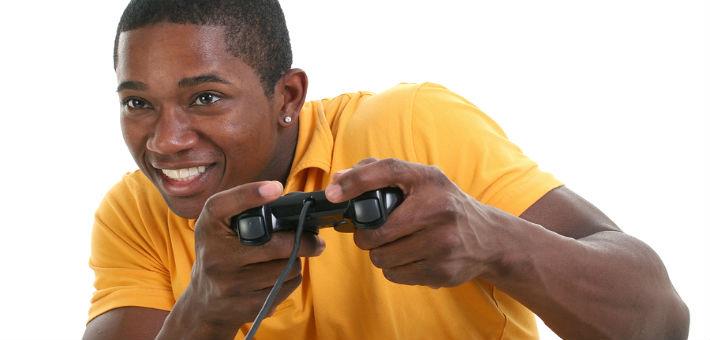
Playing Prosocial Video Games Makes a Young Adult Feel Like a Better Person
There is a lot been said about video games and young adults, mostly in a negative context. A study in The Journal of Social Psychology, however, shows that this depends on the type of games played. In particular, prosocial game play is positively related to young adults’ self-perception. It turns out that young adults who play prosocial video games feel more friendly and helpful, whereas those who play violent video games feel more impatient and rude.
Take aways
- Young adults who play prosocial video games where they, for instance, have to take care of animals, perceive themselves as more human (e.g., friendly, helpful, humble), while young adults who play violent games, such as Call of Duty, perceive themselves as less human (e.g., more impatient, rude, nervous).
- That prosocial video game play is positively related to young adults’ self-perception could be an important insight for social marketers, and game developers. To stimulate young adults’ feeling of humanity, they must look at possibilities to develop prosocial games.
Study information
The question?
Can prosocial video game play be positively related to young adults’ feelings of humanity?
Who?
Study 1: 60 community members (mean age: 27 years old; 50% were men)
Study 2: 60 community members (mean age: 26 years old; 42% were men)Where?
Austria
How?
Study 1:The young adults played one of the three following video games for 15 minutes: (1) the prosocial game “Pingus”, where players were supposed to guide penguins through different levels by taking care of them, (2) the neutral game “Tetris”, where players had to position falling figures correctly, or (3) the violent shooter game “Call of Duty 2”. Afterwards they had to indicate how many of their actions during game play were prosocial or violent, and also whether certain negative humanity traits (e.g., disorganized, rude, impatient, nervous), and certain positive humanity traits (e.g., broadminded, humble, friendly, helpful) characterized their personality.
Study 2: The procedure of this study was similar to the first study, but involved another prosocial and neutral game. The prosocial game in this study was “Sheep”, where players were supposed to guide a sheep through different levels by taking care of him, and the neutral game was “Flipper”, a pinball game.
Facts and findings
Study 1:
- The young adults who played the prosocial game (Pingus), characterized their game play actions as being more prosocial than the ones who played the neutral (Tetris) or violent game (Call of Duty 2).
- Prosocial players had a stronger perception of their positive humanity (e.g., felt more humble, friendly), and a weaker perception of their negative humanity (e.g., felt less rude, impatient) in comparison with neutral game players.
- In contrast, young adults who played the violent game had a weaker perception of their positive humanity (e.g., felt less humble, friendly) and a stronger perception of their negative humanity (e.g., felt more rude, impatient).
Study 2:
- This study showed similar results, except for these differences:
- The prosocial game (Sheep) only increased feelings of positive humanity (e.g., more friendly, helpful), not of negative humanity.
- The violent game only increased feelings of negative humanity (e.g., more rude, impatient), not of positive humanity.